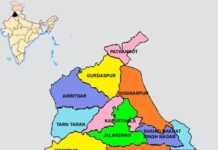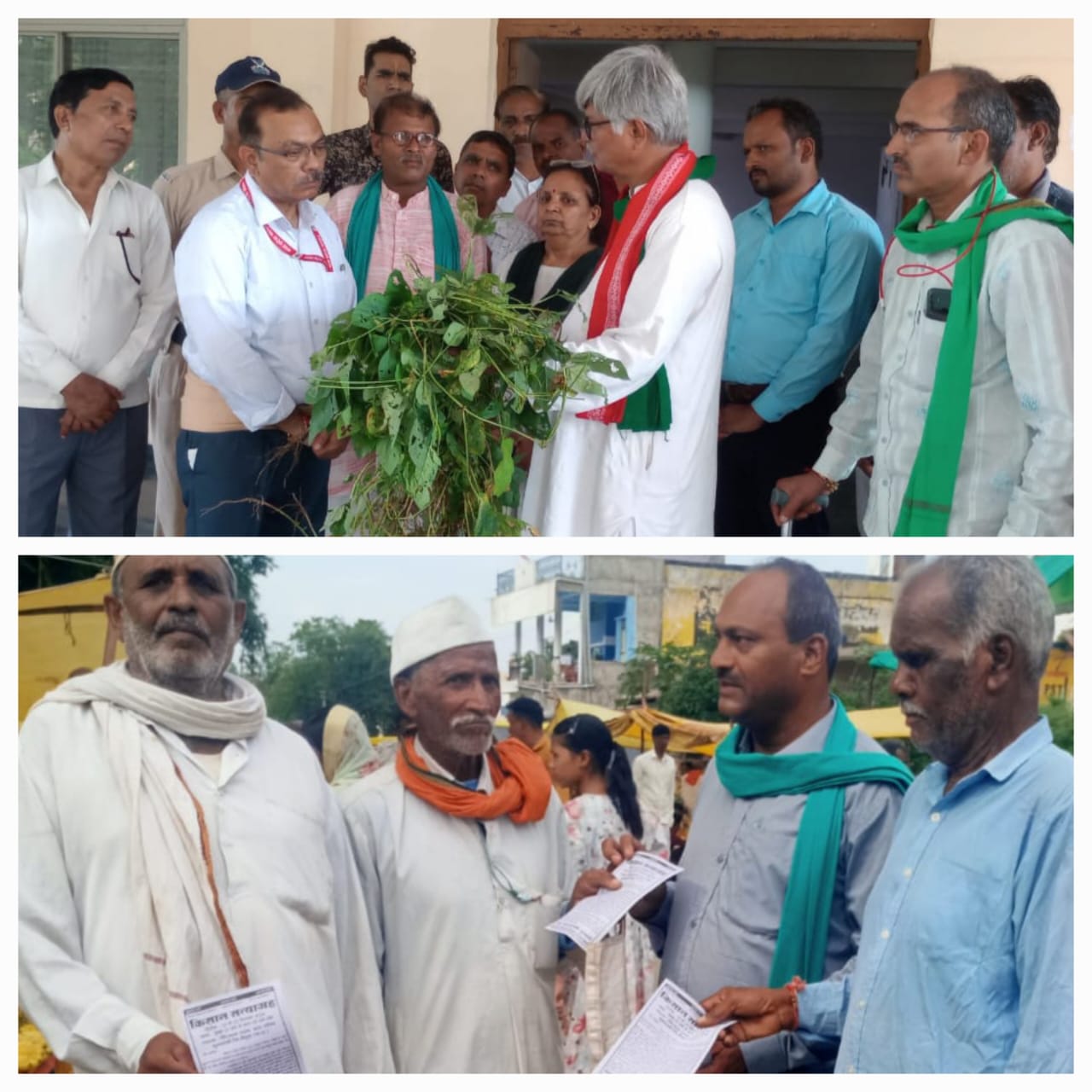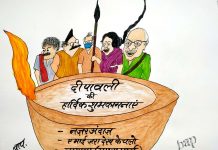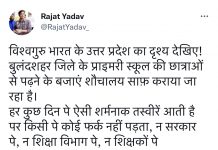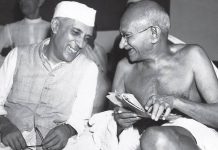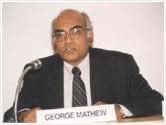
— George Mathew —
I have wonderful memories of my association with Madhu Limaye Ji, the best known among the second generation leaders of the Socialist Movement in India, during and after my six years in Jawaharlal Nehru University (1974-80). The struggle against foreign rule landed him in prison several times. Since he was a lifelong fighter for civil liberties I was attracted to him through George Fernandes. In the early 1980s when I was Secretary of the Peoples Union for Civil Liberties, Madhu Limaye’s home was my consulting centre. It is well known that for George Fernandes, Madhu Limaye was an inspiration in his political life.
When the tragic assassination of Indira Gandhi happened on 31 October 1984, the national capital city of Delhi was shaken beyond words with anti-Sikh riots. Then the Peoples Relief Committee was formed and myself worked as its Secretary, to rehabilitate the Sikh victims, under the overall guidance of George Fernandes. Madhu Limaye’s home was a point for us to report the daily developments of the tragedy. Then came the idea of starting a think tank. Madhu Limaye Ji gave all support through his ideas and today, I recall the days of our discourse at his home about it. Thus, the seed was sown in the second part of 80s and the present Institute of Social Sciences got established on 28 August 1985. Looking back, nearly four decades ago, the ideas which were surfaced from us had the advice and guidance of Madhu Ji as a strong visionary of future of Indian democracy and decentralisation of power.
A few months earlier to George Fernandes 60th birthday (3 June 1990), I met Johan Galtung, Professor of Peace Studies, University of Hawai and Research Coordinator, UN University in Delhi and he suggested to bring out festschrift volume in honour of our dear George Fernandes with the title Dignity for All. Subsequently, I discussed this idea with Madhu Ji and he encouraged me to go ahead.
I requested Madhu Limaye Ji to contribute an essay to Dignity for All, one of the festschrifts, he began to write on a hitherto unresearched subject: Socialist Communist Interaction in India. The other contributors of the volume included: Willy Brandt, Johan Galtung, Rabi Ray, Rajni Kothari, Nikhil Chakravartty, U R Ananthamurthy, H K Paranjape, and so on. Madhu Limaye Ji began writing for the volume. Soon I got a call from him. Madhu Limaye Ji told me that he would like to write a volume on this subject and not just an article. I was delighted. His writings blossomed into a fullfledged book.
Thus, in George Fernandes 60th year, we had three volumes of lasting value to present to him as a token of our tribute for his tireless championing of the cause of the poor, lending dignity to the deprived and strengthening the socialist orientation of India’s political life: 1) Socialist Communist Interaction in India, Edited by Madhu Limaye. 2) Dignity for All- Essays on Socialism and Democracy, Edited by George Mathew, and 3) George Fernandes Speaks, Edited by George Mathew.
It may be recalled here that George’s socialist education began in the early 50s in Bombay, the hard way and he graduated with his active association first with Madhu Limaye and later with Rammaonhar Lohia. In the public eye Limaye and Fernandes had been socialist-twins.
On the subject of socialist-communist interaction in India, none other than Madhu Limaye could have written with such authority. According to Limaye Ji: In this volume the focus is not on the world communist movement but on India. But in the background of the Socialist-Communist interaction in India, one should never forget, there have always lurked the developments in the international communist movement. He has combined in this study a historian’s penchant for narrative and painstaking detail, and a political analyst’s ability to link the ongoing events at the macro level with personal experiences.
Thus, the festschrift volume is an invaluable an insightful account of the complex relationship between two highly significant political movements socialism and communism Socialist Communist Interaction in India. Madhu Limaye takes the reader through the twists and turns of events from the times Marx comes to India to the realignment in the early 1990s of forces to the Left of Centre.
In the Preface of this volume Madhu Limaye Ji wrote in March 1991:
I have returned to this theme exactly after four decades. My Communist Party: Facts and Fiction, was published in early 1951. These forty years have seen vast changes in the USSR and Eastern Europe, as also in China, Vietnam, Mongolia and Cuba, the non-European Communist states. Many Communist Parties in Europe have abandoned several long-held beliefs and postulates such as Dictatorship of the Proletariat, one-party state, and centralized party structure. These had come to epitomize the modern version of Marxism-Leninism.
In the volume the focus was not on the world communist movement but on India. However, in the background of the Socialist-Communist interaction in India, one should never forget, there have always lurked the developments in the international communist movement.
Madhu Limaye’s vast contributions on the theme both in English, Marati and Hindi are highly relevant even in the present day politics. On the 50th anniversary of the Quit India Movement, he, who belonged to the last generation of freedom fighters and looked at some facets of that movement in his important book: August Struggle: An Appraisal of Quit India Movement. Madhu Limaye discussed the relevance of what happened on August 9, 1942 and thereafter. This book also includes selections from the writings of Mahatma Gandhi, Jawaharlal Nehru, Jayaprakash Narayan, Rammanohar Lohia and Aruna Asaf Ali. It sets out Aruna Asaf Ali’s views on the role of the Indian Communists in the August struggle. In the Foreword to this book George Fernandes wrote: Madhu Limaye, who has authored this little book on some facets of that struggle, belongs to that generation of freedom fighters who in 1942 were in the prime of their youth. They were full of dreams of fighting for an independent and egalitarian India in which land would be owned by the tillers and the workers would be treated as partners in common nation-building endeavours, and would be enabled to live a life of dignity. They dreamt of a vibrant and prosperous India, at peace with itself and with its neighbours.
And now, fifty years later, those dreams have turned into nightmares. Even the memory of Mahatma Gandhi has become an embarrassment to the ruling industrial and political elite of the country. This elite is busy creating monuments for the lumpen and for the corrupt men and women who, through manipulation of money-power and the aristocracy of caste, are involved in hijacking the country’s freedom to serve their own vested interests and to indulge in self-aggrandisement.”
George Fernandes continued: Madhu Limaye’s book is sub-titled An appraisal of the Quit India Movement. It is that and much more. He discusses the relevance of that movement today, and the need for a moral revolution of freedom and a united India, secured with such great sacrifice, are not to be frittered away.
Arguing the constitutional authority of the Prime Minister and President of India, his book on President Vs. Prime Minister, published in 1987, is very significant. In the Introduction, he says: This little book is about the most serious constitutional crisis of our time. The Opposition has wasted one whole month; it has not even set up a National Coordination Committee. And Rajiv refuses to refer the question of the nature and scope of the duties and rights of the Prime Minster and President respectively under Article 78 to a Parliamentary Committee of top leaders nor has he todate referred the matter to the Supreme Court for its advisory opinion under Article 143.
George Fernandes in his Introduction to this little book said: The crisis is moral. It is also political. The Prime Minister has violated the Constitution which he had sworn to uphold in the process he has treated the office of the President of the Republic with contempt.
Madhu Limaye Ji passed away on 8 January 1995. Even after more than 38 years, the lamps he lighted giving vast rays of inspiration to the political activists and students. I hope this volume will be a step forward in promoting the ideas and values for which Madhu Limaye Ji struggled throughout his life. No doubt, the life and work of Madhu Limaye Ji will be a great source of inspiration for the future generations and his legacy will be remembered for ever in India.
Discover more from समता मार्ग
Subscribe to get the latest posts sent to your email.




